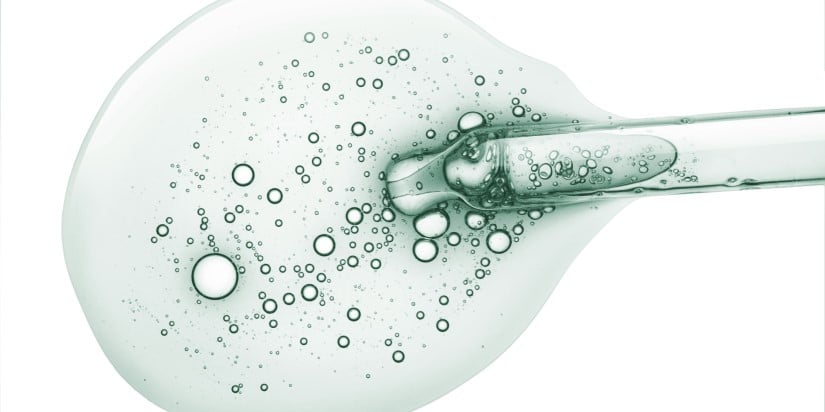Every so often, an advancement in medicine provides a substantial leap in progress toward improving health outcomes. Peptide therapy is no exception.
What are Peptides?
Peptides are short chains of amino acids, which are the building blocks of proteins. Proteins are essential molecules in the body that play various roles in cellular function, structure, and signaling, all of which influence health and well-being. The body naturally produces close to 7,000 different types of peptides depending on their sequences of amino acids, each of which serve specific functions. For instance, peptide hormones insulin and glucagon play critical roles in regulating blood sugar levels, and imbalances in these peptides can lead to conditions like diabetes. Growth hormone (GH) and insulin-like growth factor 1 (IGF-1) are peptides that are essential for growth and development during childhood and adolescence. Some peptides play roles in the immune system, such as antimicrobial peptides that help fight off infections. Peptides are often used in skincare products for their potential to improve skin health. These can be seen in products that contain collagen peptides that promise improved skin elasticity and reduced wrinkles. Branched-chain amino acids (BCAAs) are sometimes used by athletes and fitness enthusiasts to support muscle growth and aid in post-workout recovery.
Peptides are found in protein-rich foods like eggs, fish and shellfish, meats, beans, soy, oats, flaxseed, among others. Peptides are also produced and secreted by the body. Certain targeted peptides can be isolated or synthesized and administered to provide a specific effect given an individual’s need, whether it be immune system support, hormone regulation, or tissue repair.
The Benefits of Peptide Therapy
While peptides are naturally occurring in the body, they can slow down in production with age. Peptides can be synthesized and supplemented for various purposes, including medical and research applications. Peptide therapy is an advanced supplementation protocol designed to assist and optimize the body’s own natural processes at the cellular level. Peptides are most often utilized to help enhance cellular function and signaling, which can help in many processes in the body including tissue healing, inflammation control, hormone regulation, weight loss, hair growth, and other general anti-aging effects. Most peptides are typically administered via subcutaneous injection at a specific dose and time interval based on a patient’s health and goals.
An example of a common peptide that has gained significant traction in the pharmaceutical industry is semaglutide. Semaglutide is a peptide that is produced in the gut that acts similarly to glucagon. It increases insulin production and inhibits glucagon secretion. This results in a reduced appetite and increased feeling of satiety. Semaglutide is often used as a tool to assist weight loss efforts by reducing food intake and slowing digestion in the stomach. This can result in decreased body fat, lowered blood sugar levels, and decreased risk of cardiovascular disease for those with type 2 diabetes, among other health benefits.
Peptides can also be used topically to promote skin health, though this is a very new and cutting-edge strategy in cosmetics. Since peptides are so small, they can easily penetrate the skin barrier and be absorbed by skin cell membrane receptors. Certain peptides like GHK, leuphasyl, and argireline have been found to enhance collagen production, reduce wrinkles, improve skin firmness, reduce dark spots, protect from UV radiation, and even reduce free radical damage.
There are several other common peptides used to promote health on the inside and outside of the body, and even more being researched and scientifically vetted for clinical implications every year.
The Importance of Peptide Safety
The sourcing of a peptide is extremely important to its safety and efficacy. Many online retailers may sell peptides that have unclear sources or have not been fully vetted by the highest scientific oversight processes available. Illegal peptides can pose serious health risks, as can dosing peptides inaccurately. Fully accredited compounding pharmacies are typically the safest source of peptide compounds, ordered and prescribed carefully by a credentialed healthcare provider. It is also important to note that while peptides can have therapeutic benefits, they also come with potential risks and side effects. Seek a medical provider or healthcare expert that is fully trained and certified in peptide therapy to best understand the benefits and risks of beginning a peptide therapy protocol. The use of peptide-based medications or supplements should always be supervised by a healthcare professional with advanced certifications in peptide therapy, as improper use or dosing can lead to adverse effects.
While peptides have long been discovered in scientific literature, their clinical applications are still considered advanced and somewhat exclusive. The FDA currently regulates peptide classifications to ensure safety and proper sourcing. It is hopeful that more scientific data will reveal the safety and effectiveness of many more peptides to help patients manage health conditions and optimize their health and longevity through targeted therapies.
If you are interested in learning more about how you might benefit from peptide therapy, feel free to contact our team today for a complimentary Meet & Greet.

